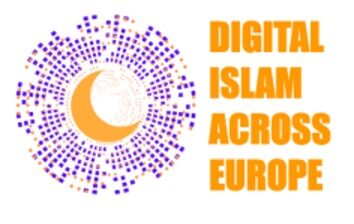
Gary R Bunt (UK Team and Website data analysis)
Anna Grasso (UK Team and Website data analysis)
This archive is part of the Digital Islam Across Europe project’s collection. One of the DigitIslam project outputs focuses on website data and collection analysis. The objective is to identify, catalogue and analyse Muslim organisations’ and actors’ websites (Online Islamic Environments or OIEs) from these different countries.1
This collection showcases websites focused around “Dawah” (the term can have multiple definitions associated with inviting individuals to Islam), particularly those tied to “Salafi” networks.
As the “Salafi Publications” website mentions, this movement was one of the first Muslim groups to set up online content in the 1990s.2 We included all UK-based pages mentioned on their websites and social media. Most of these groups are based either in either London or Birmingham. We observed that this type of content is also present in other countries involved in this project, such as Sweden, Spain and Lithuania.
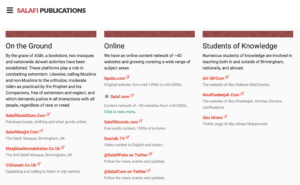
Currently updated websites linked to Salafi Publications
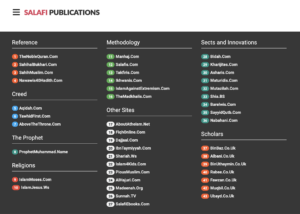
Historical websites associated with Salafi Publications most of which are still active
The sites present “Salafi” content through different kinds of media, including audio-visual materials, radio broadcasts, books, and articles. Some are associated with specific figures which are either the founders of these pages or the principal religious authority figures recognised by the movement.

Website of Abu Khadeejah one of the founders of Salafi Publications (see Amin 2022 p. 297)
In order to attract new recruits, one technique for giving Dawah is that of offering free physical or online access to the Qur’an. This initiative is not only associated with the “Salafi” movement, as demonstrated by the “Motivate a Million” website.
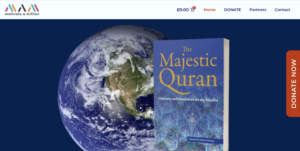
Motivate a Million website
Dawah work is also developed on social media through the efforts of Muslim Influencers. For instance, “City Centre Da’wah” as well as “Masjid Daar Us Sunnah” are associated with the well-known UK Muslim influencer Shamsi. Additionally, the website “DawahWise” is linked to two other influential figures.
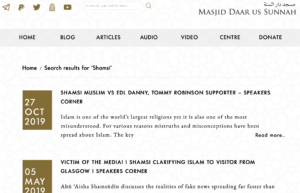
Masjid Daar Us Sunnah website showcasing videos of Shamsi
We also find other important organisations involved in the spread of Islam through the construction of mosques (such as the “Muslim World League London Office” and “Markazi Jamiat Ahl-e-Hadith”) or outreach to non-Muslims (such as “iERA”). The “Muslim World Leage London Office” is also one of the very few websites with content in other languages – in this case, Arabic.
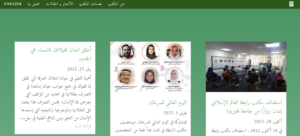
Muslim World League London Office website Arabic-language content
As most of these sites’ architecture is quite similar, we did not have many difficulties in the crawling process. Nonetheless, we noticed the “Free Quraan.org.uk” website currently solely functions as a presentation of their App and all the previous content is no longer accessible. Due to the large amount of data, we were only able to save the homepage. Nonetheless, we found a more complete version of the old website on Wayback Machine.
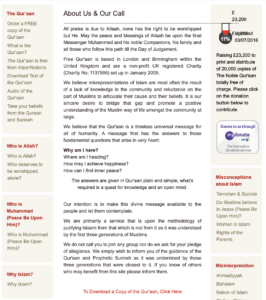
Presentation of the website on the Wayback Machine version
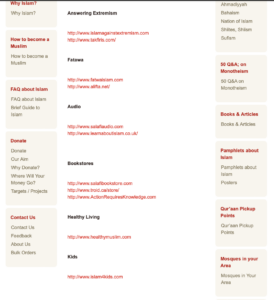
Links mentioned on the Wayback Machine version showing a link with other “Salafi” websites
This archive consists of an initial capture. We will be updating this list in due course. We believe this data can become a useful tool for researchers and the general public who have an interest in digital Islam across Europe as well as those who are mostly focused on the study of Islam or comparative religion within the British or Western context. Moreover, the analysis of these sites will be part of a wider project output through presentations and publications.
- For more information on this: https://blogs.ed.ac.uk/digitalislameurope/research-findings/archiving/ back
- Salafi Publications was founded by four British Muslims loyalist to the Saudi regime as a result of the implosion of the first UK Salafi movement called JIMAS (Jamiat Ihyaa Minhaaj al-Sunnah) founded in 1984. For more on this see: Amin, Hira, ‘The Shifting Contours of Saudi Influence in Britain’, in Peter Mandaville (ed.), Wahhabism and the World: Understanding Saudi Arabia’s Global Influence on Islam (New York, 2022) p. 290-314; Abusharif, Ibrahim N. (2019) Cyber-Islamic Environments and Salafī-Ṣūfī Contestations Appropriating Digital Media and Challenges to Religious Authority. Doctoral thesis, University of Wales Trinity Saint David. 149-153 https://repository.uwtsd.ac.uk/id/eprint/1196 – back
Image by Afshad Subair from Pixabay
